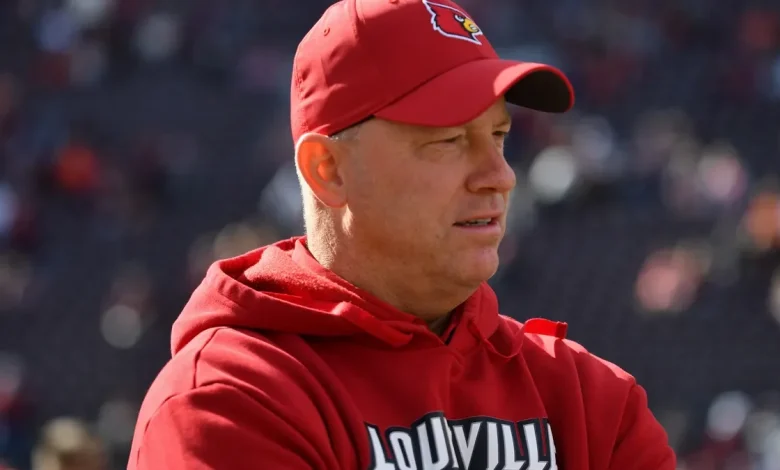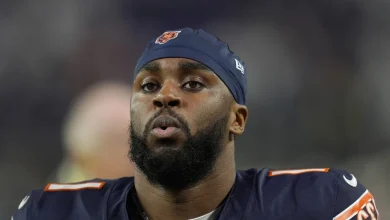Louisville football hit by America’s gambling woes. More protection needed from pitfalls

Louisville football writer Alexis Cubit recaps what Jeff Brohm before Clemson game
Louisville football writer Alexis Cubit provides a recap of what Cardinals head coach Jeff Brohm said ahead of the Week 12 ACC game against Clemson.
- Gambling-related corruption is a growing issue, affecting professional leagues like the NBA and MLB as well as college sports.
- Since the Supreme Court’s 2018 ruling, legalized sports betting has become widespread and easily accessible.
America has a gambling problem.
The money being wagered on sporting events is irrelevant in this case. It’s the corruption that follows due to things like mounting betting debts or single-game losses that is becoming a growing issue.
Louisville football coach Jeff Brohm, his family, offensive coordinator Brian Brohm and quarterback Miller Moss were confronted by this after the Cardinals’ 29-26 overtime loss to California on Nov. 8.
They became the targets of “terroristic threats” allegedly made by 38-year-old Brian S. Mandel of Corpus Christi, Texas.
Mandel has a warrant out for his arrest and was indicted in Jefferson County court on six counts of second-degree terroristic threatening and one count of attempted theft by extortion of more than $10,000.
The report does not explicitly state Mandel’s motive, but here’s where we can read between the lines about why it happened. His alleged threats occurred, according to the court report, on Nov. 8-9. That was shortly after the Cards lost the game despite closing as 18 ½-point favorites over the Bears.
We’ve all become desensitized to it until news like Mandel’s threats breaks.
The problem is, the incursions of gambling-related corruption are happening more and more, and no sporting league is immune.
Former Louisville guard Terry Rozier was swept up in the vortex, arrested in an FBI investigation last month and charged with several conspiracy counts related to leaking confidential information to aid prop bets on NBA games he participated in.
Just this week, Major League Baseball was also affected when two pitchers from the Cleveland Guardians, Emmanuel Clase and Luis L. Ortiz, were indicted for rigging bets on individual pitches.
The tricky part is what can be done about it now. It’s been seven years since the U.S. Supreme Court overturned a federal statute on sports betting in 2018, which allowed for legalized sports books to spread to nearly every corner of the United States. And access to placing a wager is now as simple as grabbing your phone and touching an app.
The point is, some proactive steps need to be taken now.
It’s way too late to scale back sports wagering. It’s embedded in our culture. The NFL has official partnerships with several betting sites. You can’t turn on the television, click on a website or pop up on a social media app without seeing many advertisements for betting sites.
And I’m not against sports wagering, when it’s done responsibly. But when gamblers show that we can’t have nice things, changes need to be made.
At a base level, college athletes need to be protected, and every method must be exhausted to do so. As a start, all prop bets on college sports, which can be wagered on an individual athlete’s performance, should be banned.
Social media makes it easier for the average person to connect with college athletes, who — like many in their generation — have multiple accounts across several platforms. It’s all too easy to connect with them, and in the case of degenerates, harass them.
(While it wasn’t gambling related, there’s a mental health aspect to this, too, which is why Kentucky quarterback Zach Calzada made his ill-advised clapback video flashing $100 bills to an internet troll who had been harassing him.)
The extreme option, which would probably be the biggest deterrent, is making everyone who wants to place a sports wager on college sports register through the federal government.
Knowing there would be some accountability and having all bets tracked would put a major pause into anyone who decided making a threat after a gambling loss is a good idea.
Reach sports columnist C.L. Brown at clbrown1@gannett.com, follow him on X at @CLBrownHoops and subscribe to his newsletter at profile.courier-journal.com/newsletters/cl-browns-latest to make sure you never miss one of his columns.





